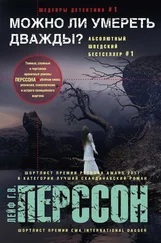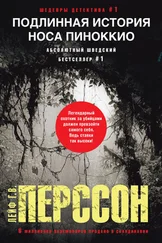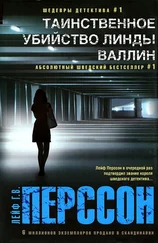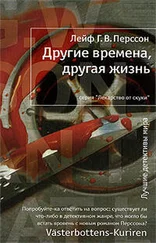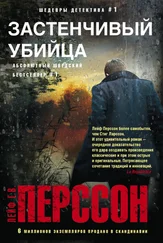Considering what had happened, the media reception was almost phenomenal, with only one exception, found of course in the major conservative morning newspaper. On its editorial page, “the nest for generally retarded and inverted opportunists,” as the prime minister used to summarize things when he was in one of his extravagant moods, a brief contribution appeared in which the writer had the gall to compare the German terrorists’ occupation of the embassy with the blowing up of the English strikebreaker vessel Amalthea in Malmö Harbor by Anton Nilson and his comrades sixty-seven years earlier.
This piece of writing upset the government’s minister of finance to such a degree that a week later he grabbed a firm hold of his suspenders during a fine bourgeois dinner at home with the business elite and took the opportunity to “read the riot act to the newspaper’s editor in chief.” According to witnesses who were present, it was superb entertainment and, considering the limited social establishment in the small country of Sweden, completely logical when seen against the background of what had happened. But it never really went further than that. The whole matter was far too un-Swedish.
It was not a bad police investigation, it was a truly lousy investigation, and considering that it concerned one of the most serious crimes in postwar Sweden, this was not really easy to understand. One of the explanations discussed within the top police command, including in confidential conversations between the national commissioner of police and his closest younger colleagues, was that the government, in some mysterious way, seemed actively disinclined to touch the subject, and that this in turn had rubbed off on the police. Here was a crime with clear political overtones, at the same time a government that was very clearly pushing the whole matter away, and what could the police do with that?
The head of the Stockholm police department’s homicide squad was not a man who devoted himself to political theorizing. That sort of thing could be left to other people, and the government’s attitude on one issue or another left him cold. He didn’t usually even vote for them. On the other hand he was indignant because the government had meddled in his investigation and repatriated his perpetrators. How could a crime investigation be conducted if there was no opportunity to question the suspects?
The homicide chief had personally looked forward to being able to talk with them — in peace and quiet, in proper sequence, and as many times as needed to put all the pieces in the right place. He had managed this countless times before, and he was convinced he would have done so this time too, and without even needing the help of an interpreter. For in contrast to his colleagues he actually had a diploma, from Whitfeldska secondary school in Gothenburg no less, and his old school German was still impeccable. What the government had been guilty of in terms of technical investigation was pure sabotage. And the damage was not mitigated by the fact that they were certainly completely unaware of that fact.
So he and his colleagues basically had to be content with conducting a technical investigation under conditions that were far from ideal. Immediately after the explosion it appeared as if all hell had broken loose. According to what the terrorists had mentioned on the phone during one of their extortion calls with the government, they were supposed to have brought at least thirty pounds of TNT into the building and there was nothing at the scene that belied that assertion.
The efforts of the fire department, however unavoidable they were, had not made matters better — pouring tons of water on top of all the other debris was not good. But what had disturbed him and his colleagues most were all the more or less extraneous individuals running around at the crime scene. Their German colleagues, for example, hadn’t added much to the affair, even if he made allowances for their involvement. If you were to be formal, the crime scene was actually German territory, so he had no right to simply tell them to leave.
It was the same way with the “felt slippers” from Sec and their irritating (to say the least) bad habit of always standing and glaring over his colleagues’ shoulders when they were only trying to do their job. When in addition they had the gall to offer him their own technicians, he really put his foot down, because if you worked that way it would all turn out to be a muddle, and personally he did not intend to spend his time pissing in the woods. Others could do that, and if they didn’t want to rely on him and his men, they could take over the whole damn case themselves.
But it had not been good, and when the police chief, after more than a week, on the same day they took away the outer barricades, informed the homicide chief that the continued investigation would be run by the secret police, he had actually experienced it as a relief.
He and his colleagues, on the other hand, had managed to establish a fairly good idea of the reason for the explosion. There was nothing to point to the terrorists’ having deliberately blown up the building. Instead most everything suggested an accident, carelessness, and ignorance combined, and the one who probably caused the discharge was the terrorists’ own “explosives expert” who, like all children, put his fingers in the wrong place. He never would have passed an ordinary Swedish rock-blasting examination, as was shown with enviable clarity by the wiring and connections that survived the explosion, even if the tabloids had praised his expertise in this area.
But there was never more to it than that, and as far as the homicide chief was concerned it was really all the same. As mentioned, what the secret police actually accomplished in the investigation they took over was unclear. In any event nothing was done that led to judicial proceedings or legal actions; instead as usual they “worked in silence,” and if anyone were to ask the homicide chief about it he was convinced that, as so often before, they had not accomplished much of anything. You didn’t need to be a police officer to figure out that there must have been more individuals involved than the six terrorists who occupied the embassy building itself.
Who otherwise could have left the message that at one o’clock in the afternoon on Thursday the twenty-fourth of April landed in the mailboxes of three different international news agencies housed in the Swedish News Agency TT’s office in the first Hötorget skyscraper, less than two miles and no more than five minutes by car from the West German embassy out on Djurgården? The six people inside the building — “commando holger meins” as they called themselves with lowercase letters throughout — could not have done it in any event.
The head of the homicide squad had thought a good deal about what must have happened before the six had entered the embassy. They must have had somewhere to stay; they must have done reconnaissance on the scene, likely tracked those who worked there and mapped out their routines, investigated suitable ways to get there and to flee if something went awry. They must have had a roof over their heads, beds to sleep in, tables, chairs, and eating utensils, vehicles to ride in, food and drink and all the practical nastiness in the form of weapons, explosives, and false documents. All combined, the preparations for the operation must have taken at least a month or two.
In a word, the terrorists must have had help. Probably from several individuals. Probably from individuals with a connection to Sweden and Stockholm. Individuals who spoke Swedish, who were familiar with the area, with the surroundings, with local customs, usage, and everyday necessities such as buying a ticket for the subway or shopping for large quantities of food in a grocery store without attracting attention. Ordinary, anonymous people their own age without a criminal record who looked and thought the way they did.
Читать дальше

